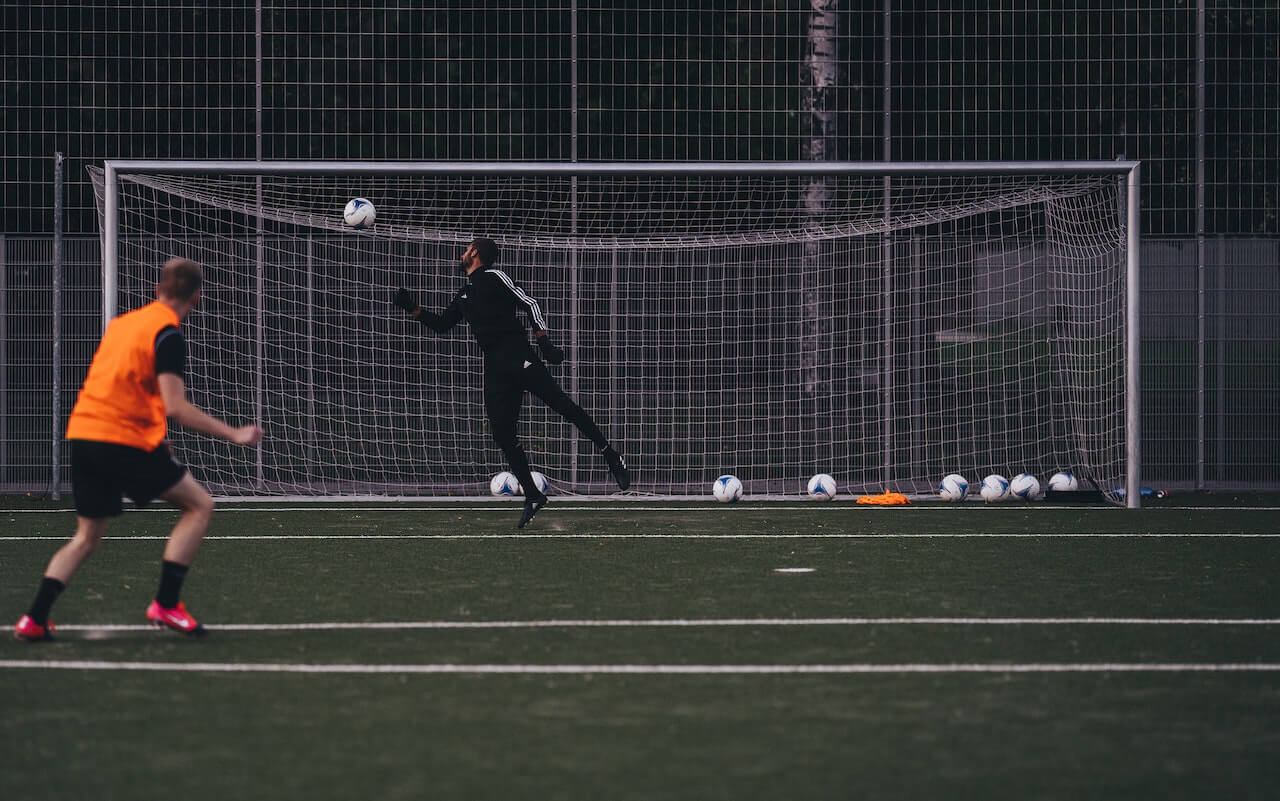Football is a sport that requires a lot of physical and mental preparation. It is not just about having the talent to play, but also about having the endurance, strength, and agility to perform at the highest level. Footballers need to train regularly to maintain their fitness and improve their skills.
Training is an essential part of a footballer’s routine. It allows them to build up their stamina, speed, and strength, as well as work on their technique and tactics. Footballers usually have a rigorous training schedule that includes a combination of physical exercises, drills, and practice matches. They also have to follow a strict diet and rest regimen to ensure that they are in peak condition for game day.
Importance of Training for Footballers
Training is an essential part of a footballer’s career as it helps them to maintain their fitness, improve their skills, and prevent injuries. Football is a physically demanding sport that requires a lot of energy, strength, and agility. Proper training helps footballers to develop these qualities and perform at their best on the pitch.
Footballers need to train regularly to maintain their fitness levels. They need to have good cardiovascular endurance, strength, and flexibility to be able to run, jump, and tackle effectively. Training helps them to improve these qualities and maintain their fitness levels throughout the season.
Training also helps footballers to improve their skills. They need to have good ball control, passing, shooting, and dribbling skills to be able to play at a high level. Regular training sessions help them to develop these skills and become better players.
Another important aspect of training is injury prevention. Football is a contact sport, and injuries are common. However, proper training can help reduce the risk of injuries. Footballers need to have strong muscles and joints to be able to withstand the physical demands of the sport. Training helps them to develop these qualities and prevent injuries.
Overall, training is crucial for footballers to maintain their fitness, improve their skills, and prevent injuries. It is an essential part of their career, and they need to take it seriously to perform at their best on the pitch.
Types of Training for Footballers
Footballers need to undergo various types of training to improve their performance on the field. Here are some of the most common types of training for footballers:
- Aerobic Training: This type of training involves activities that increase the heart rate and improve cardiovascular endurance. Examples of aerobic training include running, cycling, and swimming.
- Strength Training: This type of training involves exercises that build muscle and improve overall strength. Examples of strength training exercises include weightlifting, squats, and lunges.
- Plyometric Training: This type of training involves explosive movements that improve speed, power, and agility. Examples of plyometric exercises include box jumps, squat jumps, and depth jumps.
- Agility Training: This type of training involves exercises that improve a player’s ability to change direction quickly and maintain balance. Examples of agility training exercises include ladder drills, cone drills, and shuttle runs.
- Flexibility Training: This type of training involves stretching exercises that improve range of motion and prevent injuries. Examples of flexibility training exercises include static stretching, dynamic stretching, and foam rolling.
It is important for footballers to incorporate a variety of training types into their routine to improve their overall performance on the field. By combining aerobic, strength, plyometric, agility, and flexibility training, footballers can build a well-rounded fitness level that will help them excel in their sport.
Pre-Season Training
Pre-season training is a crucial period for footballers to prepare for the upcoming season. It is a time when players work on their fitness, strength, and technique to ensure they are in top form when the season begins.
The pre-season training program typically lasts for 6-8 weeks and involves a combination of endurance, strength, and conditioning exercises. The focus is on building a solid foundation of fitness and strength to help prevent injuries and improve performance on the field.
Footballers often start with endurance training, which includes running, cycling, and other cardio exercises. This helps to build stamina and endurance, which is essential for playing a full 90-minute game. They may also incorporate interval training, which involves short bursts of high-intensity exercise followed by periods of rest.
Strength training is also an important part of pre-season training. Footballers work on building muscle mass and improving their overall strength, which helps them to be more physical on the field and win more challenges. This may involve weightlifting, resistance training, and plyometrics.
Finally, footballers also focus on their technique during pre-season training. This includes practicing passing, shooting, and dribbling, as well as working on their tactical awareness and decision-making skills.
| Pre-Season Training | Goals |
|---|---|
| Endurance training | Build stamina and endurance |
| Strength training | Build muscle mass and improve overall strength |
| Technique training | Practice passing, shooting, and dribbling, as well as improve tactical awareness and decision-making skills |
In conclusion, pre-season training is a critical period for footballers to prepare for the upcoming season. By focusing on endurance, strength, and technique, players can build a solid foundation of fitness and strength, which will help them to perform at their best when the season begins.
In-Season Training
Once the season begins, training takes on a different focus. The goal is to maintain fitness and performance levels while minimizing the risk of injury. In-season training typically involves a combination of strength training, cardiovascular exercise, and skill-specific drills.
One common approach to in-season training is to schedule lighter training sessions immediately after a game, followed by more intense sessions later in the week. This allows players to recover from the physical demands of the game while still maintaining their fitness levels.
Strength training during the season often focuses on maintenance rather than building muscle mass. This means using lighter weights and higher reps to help maintain strength without risking injury or fatigue. Cardiovascular exercise may include interval training, which alternates periods of high-intensity work with periods of rest or lower-intensity work.
Finally, skill-specific drills help players maintain their technique and hone their abilities throughout the season. These drills may focus on passing, shooting, dribbling, or other key skills depending on the player’s position and role in the team.
Overall, in-season training is about finding the right balance between maintaining fitness and minimizing the risk of injury. By focusing on strength, cardiovascular fitness, and skill-specific drills, footballers can stay at the top of their game throughout the season.
Off-Season Training
Off-season training is a critical time for footballers to prepare for the upcoming season. During this time, players focus on improving their strength, agility, and endurance, as well as honing their skills on the ball.
One key aspect of off-season training is strength training. Footballers need to be strong to be able to perform at their best on the pitch. Strength training can include weightlifting, bodyweight exercises, and resistance training. It’s crucial to work with a qualified strength and conditioning coach to ensure that the training is effective and safe.
Another important aspect of off-season training is agility training. Agility drills can help footballers improve their footwork and reaction time, which can be crucial on the pitch. These drills can include ladder drills, cone drills, and shuttle runs. Agility training can also help reduce the risk of injury, as it improves the player’s ability to change direction quickly and safely.
Endurance training is also a key component of off-season training. Footballers need to be able to maintain their energy levels throughout the game, which can last up to 90 minutes or more. Endurance training can include running, cycling, and swimming, as well as interval training and other high-intensity workouts.
Finally, off-season training provides an opportunity for footballers to work on their technical skills. This can include working on passing, shooting, dribbling, and other skills on the ball. Players can also work on their tactical awareness, studying game footage and practicing specific game scenarios.
Overall, off-season training is a vital part of a footballer’s preparation for the upcoming season. By focusing on strength, agility, endurance, and technical skills, players can improve their performance on the pitch and reduce the risk of injury.
Nutrition and Recovery for Footballers
Footballers need to maintain a healthy and balanced diet to ensure they have enough energy to perform at their best during training and matches. Proper nutrition and recovery are key to keeping the body fueled and ready to go.
Here are some tips for footballers to maintain a healthy diet:
- Eat a variety of foods to ensure a range of nutrients
- Consume carbohydrates for energy, such as whole grains, fruits, and vegetables
- Include lean proteins for muscle repair and growth, such as chicken, fish, and beans
- Stay hydrated by drinking plenty of water throughout the day and during training sessions
- Avoid processed and sugary foods that can cause energy crashes and fatigue
Recovery is just as important as nutrition for footballers. Here are some recovery tips for footballers:
- Stretch before and after training to prevent injury and improve flexibility
- Get enough sleep to allow the body to repair and recover
- Use foam rollers or massage to alleviate muscle soreness and tension
- Take rest days to allow the body to recover and prevent burnout
- Consider using ice baths or cold therapy to reduce inflammation and aid in recovery
By following these nutrition and recovery tips, footballers can maintain their physical health and improve their performance on the field.
Common Injuries in Football and How to Prevent Them
Football is a physically demanding sport that can lead to a variety of injuries. Here are some of the most common injuries that footballers face and how to prevent them:
1. Sprains and Strains
Sprains and strains are common injuries in football that can occur when a player twists or stretches a muscle beyond its capacity. To prevent these injuries, players should warm up properly before training and games, stretch regularly, and wear appropriate footwear that provides support and stability.
2. Concussions
Concussions are a serious injury that can occur when a player’s head is hit or shaken violently. To prevent concussions, players should wear protective headgear, follow proper tackling techniques, and avoid leading with their head when going for the ball.
3. Knee Injuries
Knee injuries are common in football due to the high impact on the joints during running, jumping, and tackling. To prevent knee injuries, players should wear knee pads, stretch regularly, and avoid overuse of the knee joint by taking breaks when necessary.
4. Ankle Injuries
Ankle injuries can occur when a player lands awkwardly or twists their ankle during a game or practice. To prevent ankle injuries, players should wear ankle braces or tape, warm up properly, and practice balance exercises to strengthen the muscles around the ankle.
5. Hamstring Injuries
Hamstring injuries can occur when a player overextends their leg or pulls a muscle during running or kicking. To prevent hamstring injuries, players should stretch properly before and after training and games, warm up gradually, and avoid sudden bursts of speed or intense activity.
By taking the necessary precautions and following proper training techniques, footballers can reduce their risk of injury and stay healthy on the field.
Conclusion
Footballers training is an essential aspect of their profession. It is the foundation for their success on the field, and the key to their physical and mental well-being. Through their training, footballers develop the strength, speed, agility, and endurance they need to perform at the highest level.
Footballers training is a complex process that involves a combination of physical, technical, tactical, and mental preparation. It requires discipline, dedication, and hard work, as well as a deep understanding of the game and the individual needs of each player.
Effective footballers training programs are designed to optimize performance while minimizing the risk of injury. They include a variety of exercises and drills that target different aspects of the game, such as strength training, speed and agility drills, ball control exercises, and tactical simulations.
Overall, footballers training is a demanding and challenging process, but it is also one that is highly rewarding. By committing themselves to their training, footballers can achieve their full potential and become the best players they can be.







